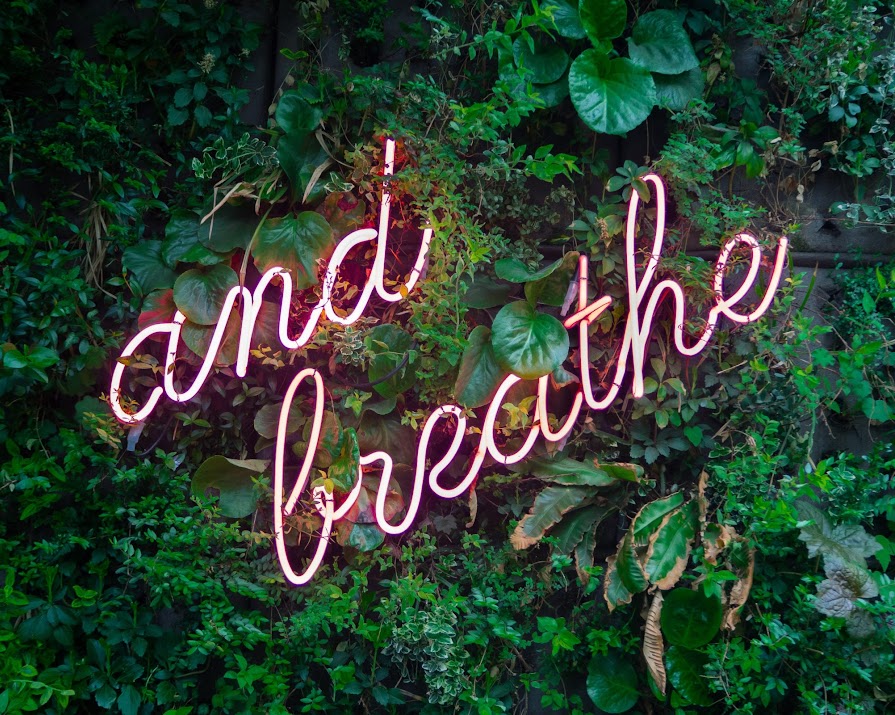
By IMAGE
27th Sep 2018
27th Sep 2018
In a recent Guardian article, a reader asked how best to use their three-hour daily commute. The answers ranged from drafting replies to emails so you get a head start before you even arrive at the office, learning a new language, reading a novel, or better yet, penning your own book. At face value, these are all admirable ways to spend what is a very sizeable chunk of each day. When you scratch the surface, however, it becomes clear that we have become conditioned to extract maximum productivity out of every moment, seeing time not spent doing something as time wasted.
When so many of us are stuck in cycles of stress, releasing ourselves from the obligation to be constantly doing something is really important and has a positive ripple effect throughout other areas of our lives. So here’s to doing nothing, which is sometimes, incredibly important.
The fact is, the drive to get the most out of our time is a common theme in nearly all of our lives. We have become more familiar with the feeling of not having enough time as opposed to having some to spare. So when we do have some free time on our hands, we often feel a lingering guilt that we aren’t occupying it and making the most of it. In short, we are our own worst enemies when it comes to policing how we spend our day.

Switching off
“So you have closed Gmail and have decided to use your phone for non-work related purposes only. What now?”
The tendency to monitor our actions in this way isn’t helped by how we define ourselves by our jobs, bringing our obsession with functionality into our home lives. The borders of work life and home life are blurring to a greater extent. As work becomes ever more demanding and precarious, the need to work outside of defined working hours just to stay in the game is a habit most of us can, unfortunately, relate to. And saying no doesn’t always feel like an option. Connectivity has made it easier to switch on and even harder to switch off from work and from being an employee, which is why articles like this are so common, encouraging people to work outside of work hours under the guise of it being “me time”.
So you have closed Gmail and have decided to use your phone for non-work related purposes only. What now? It becomes hard not to compare yourself to peers because social media inevitably means seeing the best point of people’s time. We see our friends’ lives in glittering highlights and it is difficult in that moment to not want more for ourselves. As impossible as it may seem, getting into the habit of not using the documentation of others to punish our own idleness is essential in valuing our own time.
Downtime is beneficial
“The fact is that women suffer more from work-related stress and burnout than men do.”
When we cannot gain financial or tangible results from time, we have a tendency to devalue it. Accept the limits of your capabilities. Accept that there will be minutes, maybe hours, maybe even days, where you are not as productive as you would like to be. Alongside this, accept that this is OK and that downtime is beneficial.
Being run off our feet has become a sort of modern trophy, as we equate being busy with being successful. Being too occupied to stop and chat, to have a proper lunch or to get enough sleep have become the humblebrags of a generation. A report about Work-related Stress, Depression or Anxiety Statistics in Great Britain from 2017 clearly shows that “females had a statistically significantly higher rate than males.” The fact is that women suffer more from work-related stress and burnout than men do. Keeping an eye on how we allow ourselves to work outside of our jobs is therefore an important step in addressing that.

Quality time without expectations
“If you aren’t spending your bus journeys to and from the office learning Spanish or working on the next bestseller, then that is OK”
So what can we do? Having time, like during your commute, that is free of obligations is in itself a sort of mindfulness. This is what ‘me time’ is, rather than ‘me time’ being an extension of our jobs or bonus time we can use to get ahead at work. However long your commute may be, actively making that time a space in your day free from pressure is essential. Spending your bus journey working is being productive for your employer rather than for you. Instead, see it as an opportunity for quality time without expectations.
In a more literal sense, apps like Thrive can help curtail that propensity to mindlessly check our phones by placing limits on use. Meditation apps like Headspace are a great tool in getting used to spending even the briefest amounts of time in a more focused way. Tracking your mood through an app or a diary is useful in better understanding what triggers certain highs and lows. Starting to habitually take stock of how you are doing is more important than compounding the pressure to do more.
If you aren’t spending your bus journeys to and from the office learning Spanish or working on the next bestseller, then that is OK. You are only human and you have limits. Your time is valuable, no matter how you choose to spend it.
Words by Emma Flynn























